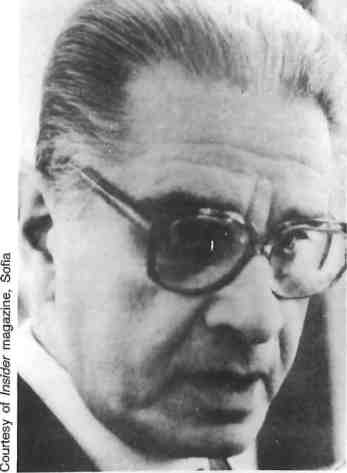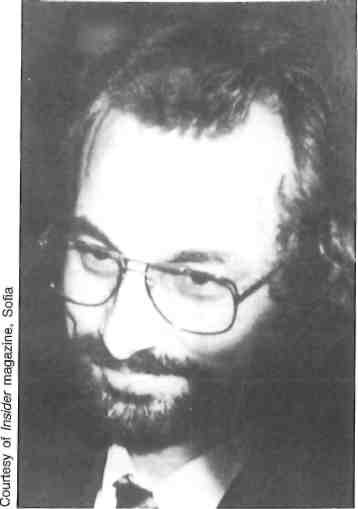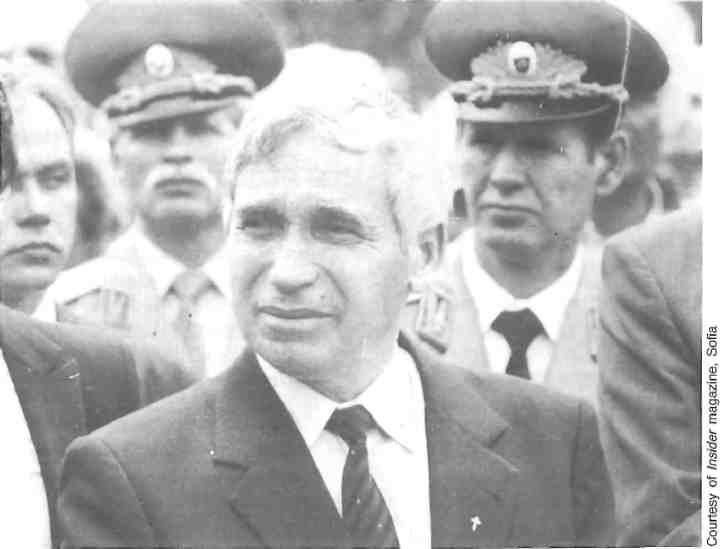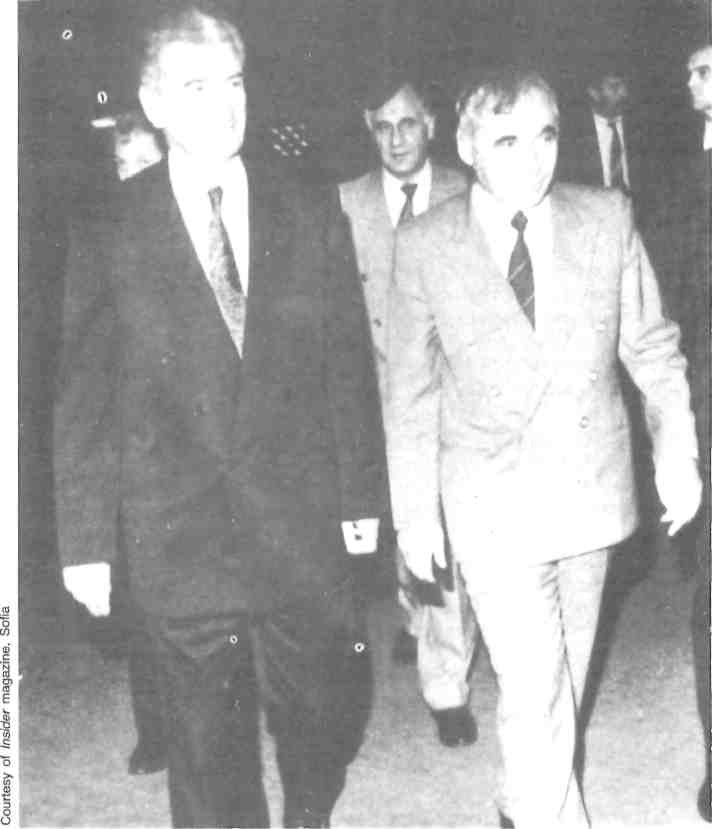There are two popularly held viewpoints which tend to oppose one another: ‘there is nothing like personal contact to improve relations’ and ‘familiarity breeds contempt. In the case of Bulgaria, the visitor from Greece finds himself pleasantly surprised: Contacts make friendship possible, but the familiarity of such a close neighbor is not strong enough to be taken for granted. Most of the ‘horror images’ we are led to believe on this side of the border are simply untrue. On the other hand one must be legitimately concerned over the low development of western political standards and public lifestyles.
Bulgaria is an engrossing country to visit, in terms of a turbulent past strongly coloring the present, and in its current struggle to survive economically while trying to enter the mainstream of European democracies. It remains typically Balkan, lacklustre and shoddy in a way to make it unattractive to the average western holiday-maker, yet fascinating to the traveller interested in how societies evolve and cope in the most confused and disjointed peninsula in Europe, if not in the world.

Greece’s northern neighbor, caged between Turkey to the East, the Former Yugoslav Republic of Macedonia (FYROM) and Serbia to the west, and Romania to the north, is today politically plagued by a highly polarized conflict between the ‘blues’ and the ‘reds’; that is, between the ‘blue’ anti-communist and the former communist elite. The former are developing with painful slowness as the new and gradually dominant force following the collapse of the eastern European communist empire. They are angered over the fact that the ex-communists allegedly still enjoy many of the political powers andeconomic benefits of the past. On the other hand, the ‘reds’ who are the ‘redeemed’ representatives of the old communist order and their sympathizers, claim that their democratic conversion is genuine, and so they complain now of political persecution.
In party terms, these two main camps are represented respectively by the right-wing oriented Union of Democratic Forces (UDF), and by the left-wing Bulgarian Socialist Party (BSP), as the former Communist party was renamed.
In between, at least for the time being, is the small, ethnic Turkish party calling itself The Movement for Rights and Freedoms (MRF), the third and only other political body with representatives in parliament despite the existence of more than a hundred parties in the enthusiastically pluralistic neo-democratic state of Bulgaria. Yet, through a series of political coincidences abetted by the shred skills of its leader, Ahmet Dogan, little MRF has managed to hold the balance of power and to be instrumental, by the support it exercises in cooperation with the socialists,in holding the balance of power of the current government of technocrats of Prime Minister Lyuben Berov.
This government appears above all to be strongly loyal to President Zhelyu Zhelev. Though not holding executive power under the constitution, he seems at present to be a (sometimes controversial) balancing source of authority. Just at present, however, he is out of favor with the UDF, which accuses him of favoritism towards the socialists.
Arising of this unstable political situation – not surprising perhaps but certainly gratifying – is a strong trend towards consensus politics and a rejection of Left-Right polarization – what is widely referred to as the ‘Centrist Movement’. The implication is that moderates, splitting away from the ‘blues’ and ‘reds’ as well as smaller parties and major forces representing the agricultural population, business interests and the trade union movement, would sink their differences by creating a new party that could govern the country alone. Such names and forces include Mr Ludjev, the recently formed ‘New Democracy’ group in parliament which has broken away from the UDF, George Ganchev of the Bulgarian Business Bloc (BBB), Alexander Karakachanov of the Greens, and the agricultural parties.
In brief, Bulgaria is going through those growing pains of fledging democracy which are so typical of all countries emerging from left- or right-wing dictatorship, or, indeed, not unlike when they were liberated from Fascist occupation at the end of World War II. The great difference, of course, is that the postwar communist takeover delayed this liberalization procedure of countries like Bulgaria by another half century.

Certainly of concern to Bulgarians -and even more so to Greece (though probably without justification) – is the pivotal role played by the small ethnic Turkish party. Since it holds the parliamentary balance of power by occupying ten percent of the seats, MRF upholds the present government of ex-communist Socialists. This alliance of convenience is seen as extremely odd considering that under the communist regime in its final years relations with Turkey became particularly tense over strongman Todor Zhivkov’s forceful attempt to assimilate the half a million ethnic Turks by altering their names and cultural identity. After Zhivkov’s fall, the Turkish party gave support in government to its somewhat more natural allies, the anticommunist, or ‘blue’, Union of Democratic Forces party (UDF) under then Prime Minister Dimitrov.
The reason why Greeks are even more alarmed than the average Bulgarian over the elevated political role of the ethnic Turkish party is that they see it as ‘proof that the government in Sofia is in effect controlled by Ankara, and that Bulgaria is providing a glaring example of ‘Moslem encirclement’ of Greece, that arc it sees stretching from Eastern Thrace, across Bolgaria and FYROM to Albania.
In fact there is little doubt that this is not the case. The Turkish party is under constant watch and highly vulnerable to open criticism as an alleged ‘agent of Ankara’. Allegations persist that Mr Dogan had worked for Turkish intelligence. The public is very sensitive to the Moslem minority, the poorest and least educated community in Bulgaria, and wary of its becoming a potential social and political troublemaker with backing from Ankara.
Living in such a climate, Mr Dogan is watching his step. In fact, his self¬consciously patriotic public declarations make him sound more patriotic, more Bulgarian nationalist than the Bulgarians themselves. He has even publicly criticized Turkish President Ozal’s recent statements suggesting a more aggressive ‘Ottoman-style’ policy in the Balkans by protectively embracing all Moslems in the peninsula. Mr Dogan has joined leaders of all political shades in outrightly rejecting President Ozal’s request for right of military passage through Bulgaria, purportedly to help the besieged Moslems in Bosnia.

There is little doubt that in Bulgaria, as in all Balkan countries with a common Orthodox heritage, the disruptive legacy of the Ottoman empire is vividly remembered rendering the public suspicious of Turkey’s size and military potential.
Outward nationalism at present is not particularly aggressive in Bulgaria, as it does not have the economic and military strength nor the overwhelming support of a foreign power that would encourage it to risk ‘foreign adventures’. Soviet influence has now by and large been supplanted by that of the United States, despite the public’s disillusionment over the fact that much-expected Western economic aid and the creation of a ‘capitalist paradise’ has not come true. Washington has a strong cultural and economic presence in Sofia and is widely believed to have used money and other political measures, including backstage cooperation with the all-powerful and controversial PODKREPA trade union movement, to help and influence the course of post-communist Bulgaria.
On the Macedonian issue, Sofia’s public oratory is far less nationalistic than that of Greece. Yet Bulgaria still officially sees the republic of Skopje-Macedonia (FYROM) as Bulgarian territory and its Slav inhabitants (not the Albanians) as Bulgarians. Ultra-nationalist groups claim that the ‘real1 Bulgaria extends over 240,000 square kilometres as opposed to the present 111,000, and that “Bulgaria is wherever Bulgarians live.”

In this sense, such nationalists include not only Skopje-Macedonia in ‘Greater Bulgaria’, but also parts of Albania, Serbia, Romania, Moldavia and the Ukraine – and, yes, parts of northern Greece, too. There, they say, there are as many as 70,000 Bulgarians. Athens denies this, calling them Slavophone Greeks. But after making such alarmist claims, the Bulgarian nationalists, even the VMRO whose leadership I spoke with not only in Sofia but also in their ‘capital’ of Bla-goevgrad lying near the FYROM border halfway between Sofia and Greece, are quick to point out that they do not favor a change of frontiers. They say they only see “the cultural liberation of, and unity with” the ethnic Bulgarians in all these countries.
Right now the greatest western concern here is Serbian sanctions-busting through Bulgaria. Contrary to the UN sanctions orders, it is believed that considerable amounts of oil and other basic goods get to Serbia across the Bulgarian borders and especially along the Danube river, where barges and other vessels can deliver substantial quantities of oil. Yugoslav borders are notoriously porous and gun-running is endemic.
Paradoxically, both government officials and private experts openly admit in Sofia that such sanctions-busting does go on, at considerable levels. But they also insist that the government itself fully supports the UN decision and does everything possible to prevent such smuggling. This the West does not seem to doubt. But on a private level, they concede, sanctions-busting across the Bulgarian borders is quite considerable. They say this is motivated by the large profits involved. At the same time Bulgarians feel a certain popular affinity with the Serbs.
On this subject, Bulgarian officials and private sector opinion-makers agree there is a ‘split personality’ atti-tude towards the Serbs. On the one hand they are concerned over Serbian strength and military aggressiveness, being just as anxious as they were during Tito’s time – which is one of the reasons why they turned to the Soviet Union as a protector. On the other, Bulgarians have a religious, cultural and language affinity with the Serbs, and thereby considering them ‘relatives’ – though not ‘brothers’.
Under the circumstances, there is little justification for Greece’s overheated concern that it has an ‘enemy’ on its northeast borders. Closer relations between Greece and Bulgaria have developed to an extraordinary degree since Mr Karamanlis’ epoch-making visit to Sofia as Prime Minister in the late 1970s, and especially in the last few years when Turkey has been seen as a common threat. These relations almost unravelled overnight with the formation of the Berov government supported by the ex-communists and the ethnic Turkish party. Now, once again, the visit to Sofia by a Greek Prime Minister – this time Premier Mitsotakis in mid-March has gone a long way towards restoring those good relations. Greek political and business leaders apparently saw for themselves that the ‘monster’ they had created was only an illusion.
Paul Anastasi, The Athenian’s diplomatic editor, is an Athens-based correspondent, writer for the New York Times and Daily Telegraph.
The above article was compiled following a four-day visit to Bulgaria. The interviewed were: Dr Kiril Velev, Deputy Minister of Trade; Dr Stefan Hadjitodorov, Secretary General of the Radical Democratic Party and Secretary of the Bulgarian Academy of Sciences; Georgi Prohashi, Executive Director of the American-funded Open Society Fund of Sofia, a branch of the American Soros Foundation; Georgi Pirinski, Deputy Director of the Bulgarian Socialist Party; Dr Dimitar Gotzev, research fellow at the Bulgarian Academy of Sciences’ institute of History, and Dr Bozhidar Evtimov and Dr Kristjo Gerginov, also research fellows at the Bulgarian Academy of Sciences’ Institute of History; Georgy TV. Pashov, the Deputy Mayor of Blagoevgrad; three local and central leaders of the VMRO: Valentin Kitanov, Simeon Panev, and Anatoli Velichkov; Evgenii Dainov, Managing Editor of the English-language Insider magazine; Dr Emit Tzenkov, editor of the Kontinent, and Ognian Shentov and Mois Fayon, General Director and Research Director respectively of the Center for the Study of Democracy.







